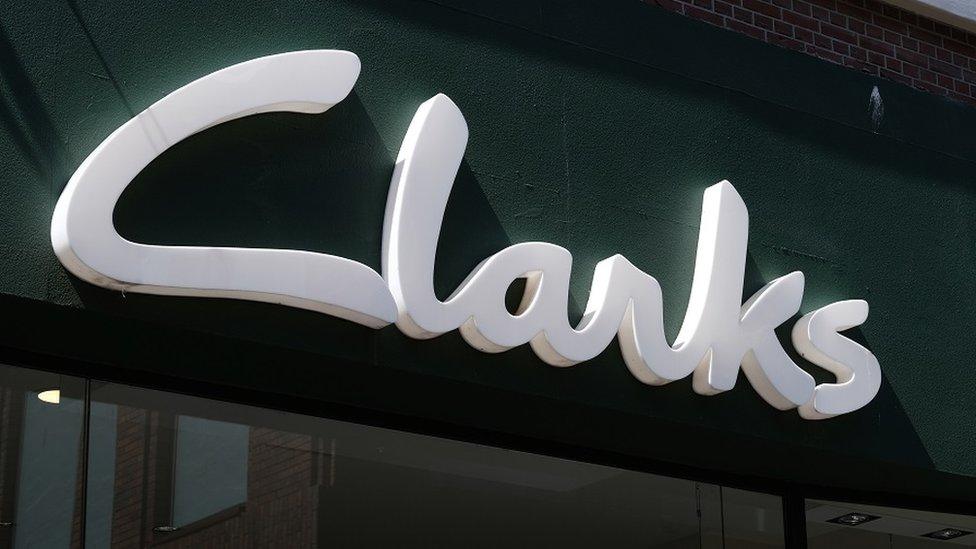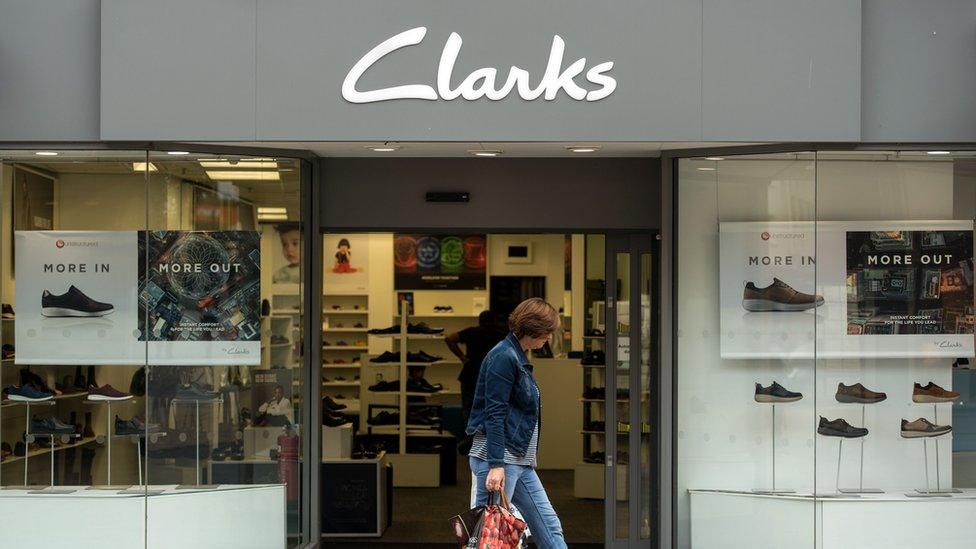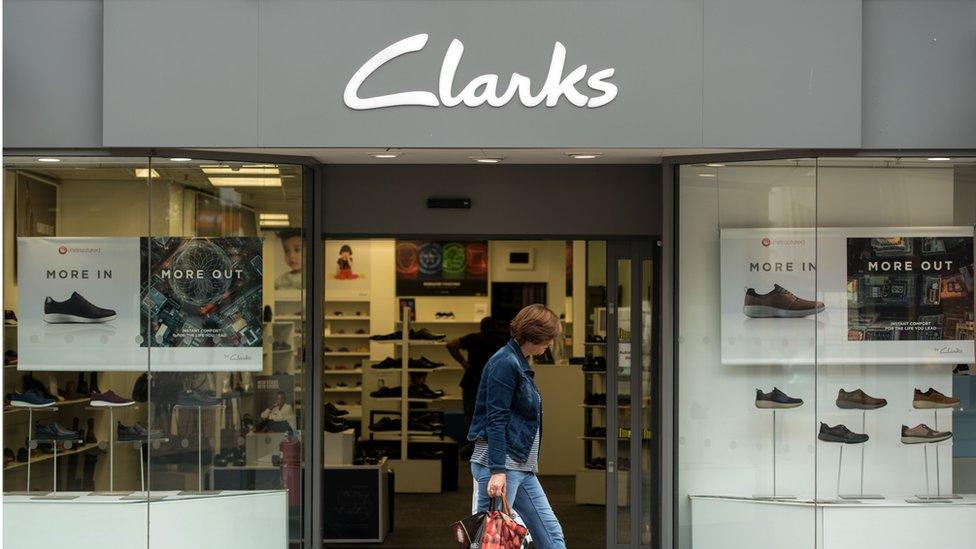Clarks staff hit out at future 'unworkable conditions'
- Published

A consultation document suggests Clarks plans to cut maternity leave, sick and redundancy pay
An online petition has been launched against proposed changes to employment terms and conditions for staff at the shoe chain Clarks.
It calls on the Somerset-based company to scrap plans to reduce maternity leave, holiday allowance, notice periods, sick and redundancy pay.
Clarks, which was rescued in a £100m investment deal last year, declined to comment.
The BBC has seen a document suggesting a consultation has begun with staff.
Among the proposals cited in it is a reduction in annual leave from 25 to 22 days. Public holidays would remain.
Maternity leave could be standardised for all staff with most pay grades seeing a reduction.
For the highest earners it could decrease from 26 weeks full pay down to six weeks at 90% of their salary.

Clarks was rescued by a £100m investment deal by LionRock Capital in November 2020
The plans would see redundancy packages become less generous and notice periods shortened from one month to one week for staff employed for less than two years.
Under the new terms in the document, the amount of time workers would receive at full pay if they were off sick would be halved.
One employee, who wanted to remain anonymous, said: "It feels like a kick in the teeth for the hard working remaining colleagues who are continually being stretched to cover the loss of staff and roles.
"It could leave employees at significant risk of financial hardship."
The petition aims to gather more than 1,000 signatures to try and stop what it describes as "unworkable conditions".
Clarks has more than 300 stores in the UK, which have struggled during the pandemic.
In November last year it was rescued by a £100m investment deal by the Hong Kong-based private equity firm, LionRock Capital.
The Clarks Family, which founded the business almost 200 years ago in Street in Somerset, is no longer the major shareholder.

Follow BBC West on Facebook, external, Twitter, external and Instagram, external. Send your story ideas to: bristol@bbc.co.uk , external
Related topics
- Published4 November 2020

- Published21 May 2020

- Published5 August 2020
